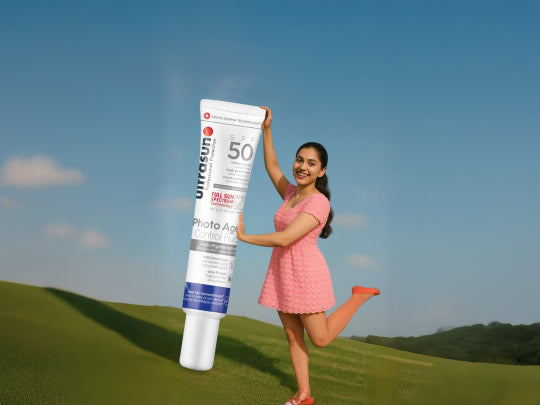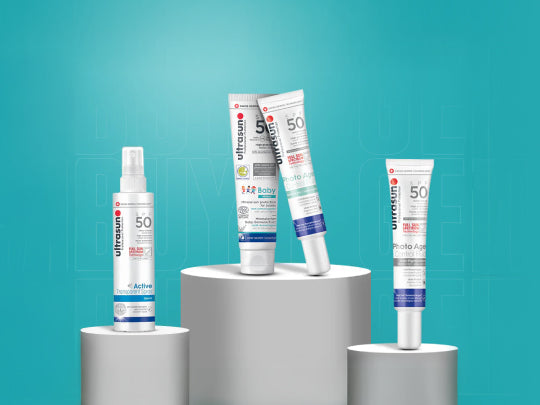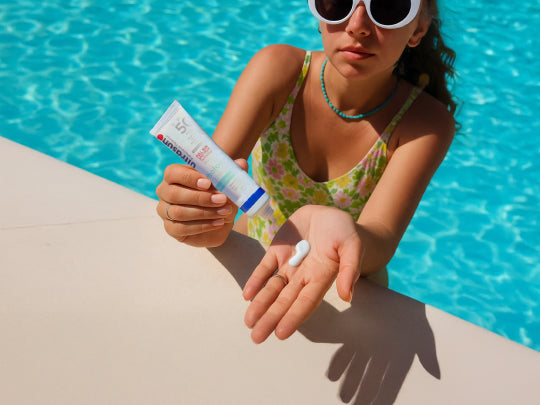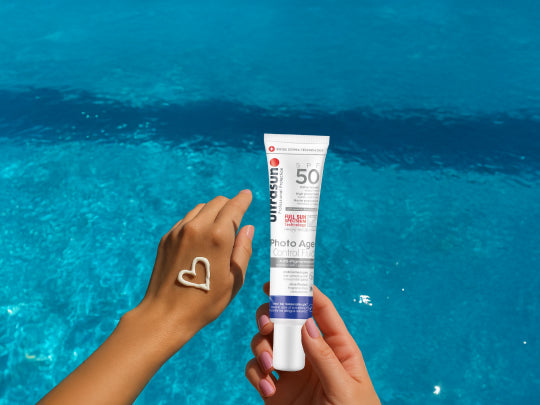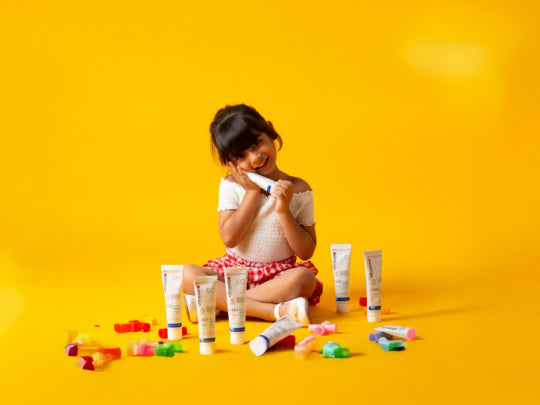Acne is a common skin concern that affects millions of people worldwide. While most individuals focus on treatments like cleansers, spot treatments, and moisturizers, one crucial product often gets overlooked sunscreen. But can sunscreen help prevent acne? In this blog, we'll explore the relationship between sunscreen and acne, offering expert tips and insights into the root causes of acne and how sunscreen can play a role in your skincare routine.
Understanding Acne: What Causes It?

Acne occurs when hair follicles become clogged with oil and dead skin cells. This can lead to whiteheads, blackheads, pimples, and cysts. Several factors contribute to acne, including:
- Excess Oil Production: Overactive sebaceous glands produce too much oil (sebum), which can mix with dead skin cells and clog pores.
- Bacteria: The bacteria Propionibacterium acnes can thrive in clogged pores, leading to inflammation and the formation of acne lesions.
- Hormonal Changes: Hormonal fluctuations, especially during puberty, menstruation, or stress, can increase oil production and contribute to acne.
- Diet and Lifestyle: High-glycemic foods, dairy products, and stress have been linked to acne flare-ups.
- Genetics: A family history of acne can make you more prone to developing it.
- External Factors: Pollution, humidity, and certain skincare products can exacerbate acne.
Understanding these root causes is essential in determining how sunscreen can fit into your acne prevention strategy.
The Role of Oil-Free Sunscreen for Acne-Prone Skin
While sunscreen alone cannot cure acne, it significantly manages and prevents breakouts, particularly for those with acne-prone skin. Here's how:
- Protects Against UV-Induced Inflammation: UV rays from the sun can cause skin inflammation, which can worsen existing acne and trigger new breakouts. Sunscreen helps reduce this inflammation by protecting the skin from UV damage.
- Prevents Post-Inflammatory Hyperpigmentation (PIH): Acne often leaves behind dark spots, known as post-inflammatory hyperpigmentation. Sun exposure can make these spots darker and more persistent. By wearing sunscreen, you can prevent the worsening of PIH, leading to a more even skin tone.
- Minimizes Pore-Clogging Effects: Many people avoid sunscreen because they fear it will clog their pores and cause breakouts. However, using an oil-free, non-comedogenic sunscreen specifically formulated for acne-prone skin can protect your skin without clogging pores.
- Supports Acne Treatment: Some acne treatments, like retinoids and benzoyl peroxide, can make your skin more sensitive to the sun. Sunscreen is essential for protecting your skin from sunburn and irritation while using these treatments.
How to Choose the Right Oil-Free Sunscreen for Acne-Prone Skin
Selecting the right sunscreen is crucial to ensure it doesn't exacerbate acne. Here are some tips for choosing the best sunscreen for your skin type:
- Look for Non-Comedogenic Formulas: Non-comedogenic sunscreens are less likely to clog pores, making them ideal for acne-prone skin. Check the label to ensure it’s free of pore-clogging ingredients.
- Opt for Oil-Free Products: Oil-free sunscreens are lightweight and less likely to leave a greasy residue on your skin. They are perfect for those with oily or combination skin types.
- Choose Broad-Spectrum Protection: Ensure your sunscreen offers broad-spectrum protection, which shields your skin from UVA and UVB rays. UVA rays can penetrate deeper into the skin, leading to premature aging and aggravating acne scars.
- Consider Tinted Sunscreens: Tinted sunscreens contain iron oxides that can provide additional protection against visible light, which has been shown to contribute to hyperpigmentation, especially in darker skin tones.
- SPF Matters: For daily use, a sunscreen with SPF 30 or higher is recommended. If you’re spending extended time outdoors, consider an SPF 50 or above.

Recommended Sunscreens for Acne-Prone Skin
Here is an expert-recommended Oil-Free Sunscreen for Acne-Prone Skin that is suitable for acne-prone skin:
Tips for Applying Sunscreen to Acne-Prone Skin
Proper application of sunscreen is key to its effectiveness. Follow these tips to ensure you’re getting the most out of your sunscreen:
- Apply Sunscreen as the Last Step: After cleansing, treating, and moisturizing, apply sunscreen as the final step in your morning skincare routine.
- Use Enough Product: Don’t skimp on sunscreen. Use about a teaspoon for your face and neck, and be sure to cover all exposed areas.
- Reapply Every Two Hours: Sunscreen needs to be reapplied every two hours, especially if you’re sweating or spending time outdoors.
- Pair with a Broad-Brimmed Hat: For extra protection, wear a hat and seek shade when the sun is at its strongest, typically between 10 AM and 4 PM.
- Be Consistent: Make sunscreen a daily habit, even on cloudy days or when you’re indoors, as UV rays can penetrate windows.

Conclusion
While sunscreen alone won’t cure acne, it’s a vital component of a comprehensive skincare routine for acne-prone skin. By protecting your skin from UV-induced inflammation and preventing post-acne dark spots, sunscreen can help you achieve a clearer, healthier complexion. Remember to choose a sunscreen that suits your skin type, and apply it consistently to reap the full benefits.
For more skincare tips and product recommendations, stay tuned to our blog and explore our expert guides on maintaining clear, radiant skin.
Read More...
Does Sunscreen Cause Acne ? - Dermatologist Answer


